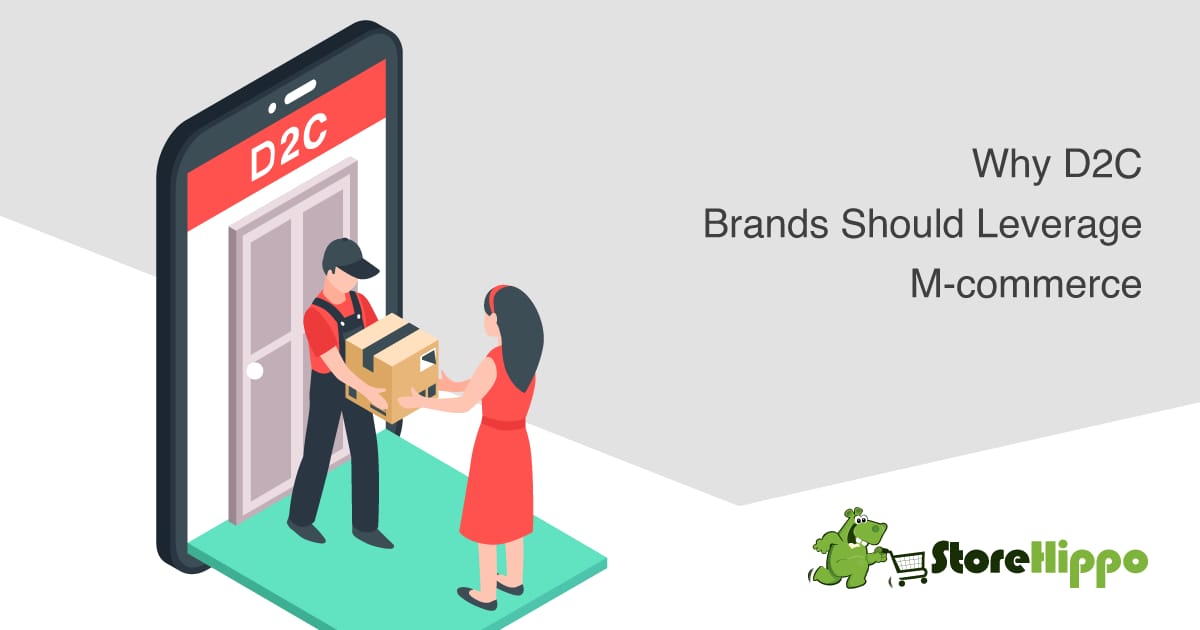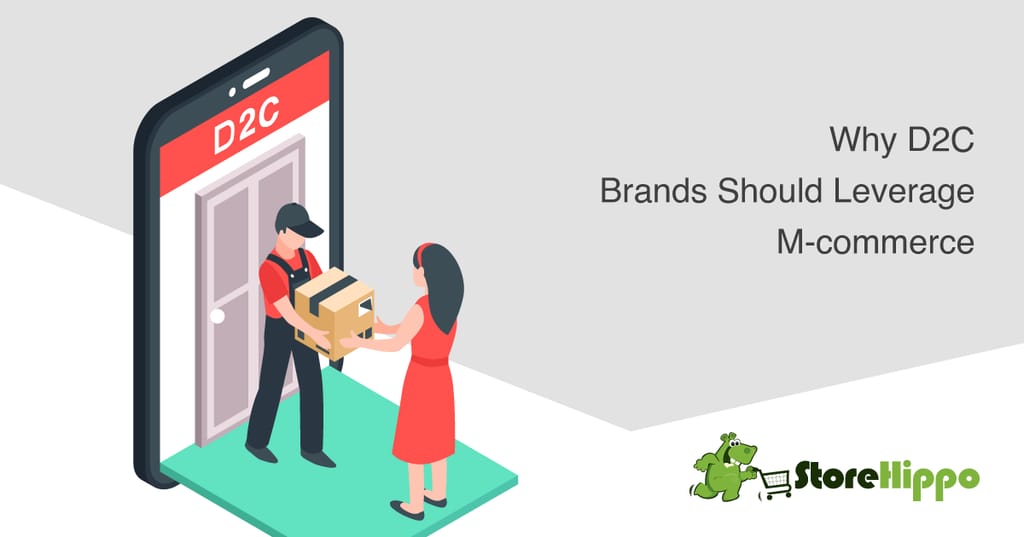How many hours do you spend on mobile devices everyday? If we talk about common D2C ecommerce buyers, here are some cool statistics by Entrepreneur (source).
Infographic: How much time customers spend On their mobiles?
Millennials spend an average of 3.7 hours each day on mobiles
Generation X dedicates an average 3 hours per day
Boomers are reported to spend 2.5 hours per day
From hours, let’s come to the number of times users check their phones in a day. It is 58 times a day, where 30 of these are performed during work hours (Guardian).
On which activities do mobile users spend their time on mobile?
According to some latest research, they usually do online shopping on m-commerce sites or apps, make bill payments, read news, play games, listen to music, binge watch, watch youtube, order food, etc.
Interesting Fact: 65% of global online transactions happen on mobile devices, (Criteo) while there are 5 billion estimated smartphone users globally (Pew Research). The growth of mobile commerce has been substantial in the last 6 years; check this below.

Source: Statista
Takeaway: When people have centred most of their attention on smartphones, it’s time for your D2C ecommerce business to shift to a mobile commerce approach.
What is the online shopping behaviour of mobile users?
To help your D2C brand to realise the behaviour of mobile commerce buyers, here are well-researched statistics:

67% of men and 54% of women said they would reach for their mobile phones before asking a salesperson for help (Medipost)
77% of buyers use their mobile devices to compare prices online while shopping in offline stores [PR Newswire]
71% of in-store shoppers who use smartphones for online research for better experience [Google]
67% of buyers do online shopping for no specific reason, whereas 77% of these users end up purchasing aggressively [PixelUnion]
What are the problems faced by buyers while shopping via smartphones?
To take full advantage of mobile commerce, it’s important to recognize and address mobile users’ pain points. Here they are:
Slow-loading website
A faulty and long checkout process often leads to frustration and abandoned carts
Difficulty in navigating and finding pages on mobile which negatively impacts the mobile site traffic and increases the bounce rate
Lack of mobile wallets contributes to customer dissatisfaction with your D2C brand
Non-responsive product pages i.e. the content of the page does not adjust its size according to device screen size Users are served with desktop site layout, where they have to zoom in and out the content to read it
Too small images, texts, and very limited product information is available to place a purchase order
Table of Contents
- 4 Core Ingredients to convert your D2C mobile users
- 1. Mobile apps
- How to easily create D2c Mobile apps via StoreHippo mobile commerce solutions?
- 2. D2C PWA sites
- 3. Mobile friendly themes
- 4. Headless technology
- Top D2C Brands that see commendable results after going headless
- How to go headless with Storehippo ecommerce solution?
- 5. Digital wallet payments
- 6. Voice commerce
- Wrapping up
4 Core Ingredients to convert your D2C mobile users
1. Mobile apps
D2C ecommerce app is the best channel to optimize the customer's experience, right from when users first sign-up on your app to making purchases and becoming regular customers. Hence, building apps is critical D2C business success.
Do you know? Shopping ecommerce apps saw a user app category with the highest penetration rate of 35.79% among Android users(Statista). Let’s also know about how much time they spent on mobile apps.
 What is the ROI of building apps i.e. Benefits?
What is the ROI of building apps i.e. Benefits?
Apps deliver phenomenal user experience (UX), by making shopping smooth at every step. This also accelerates the buyer’s journey
Effective channel to build customer loyalty and gain their trust by offering intense personalization, special app specific offers, chat support and fast customer support
Easy to build and does not require heavy investment in IT staff, only if a SaaS ecommerce platform is used
App push notifications are the best way to engage with your customer and build powerful relationships
Mobile app checkouts can convert more buyers due to friction-free purchase experience combined with discounts/coupons, one-click payment and free deliveries
How to easily create D2c Mobile apps via StoreHippo mobile commerce solutions?
With StoreHippo ecommerce software, you can easily build mobile apps right from the admin dashboard with minimal coding i.e. no heavy coding is required. Want to know the top features you get in StoreHippo mobile apps? Find them below:
User-friendly features: Easy login and registration, product filtering and sorting, detailed product information(including reviews), intuitive product gallery/feed, augmented reality, multiple payment choices, order summary and tracking, secure in-app payments, tracking of returns and exchanges, automatic location detection, once click login/sign-up, app notifications, wishlisting, product comparison, loyalty programs/memberships, offers, etc
Business-friendly features: Invoice management, customer data segmentation and analysis, integrated shipping solutions, shopping cart, headless APIs architecture, customer service, Integration with third party software/tools, Social media integration, Synchronization of content between app and website, and even more.
2. D2C PWA sites
Progressive Web Applications(PWA) are m-commerce sites that look and feel like an app. Meaning, users can browse PWA on their browser with an URL(like a regular website); but right after they land on PWA, they get the experience of using an “app”. PWAs promise to bring the high speed and slick experience of a native app to mobile browsers.
Innovative Features of PWA sites:
Mobile-first Interface: The site interface should be tailored according to mobile devices unique requirements.
Social media Integration: PWA must allow customers to share their purchases, reviews, and wishlisted items on social networking sites
Web Push Notification: A web notification increases the ROI of your PWA site as it entices the user to visit the store and make a purchase
Reporting And Analytics: Want to know how site visitors are interacting with your store? Reporting feature will automatically track and report the user behaviour so that you can optimize your site
Live Chat: With Live chat, customers can easily connect and resolve their issues in seconds. For business, enabling this feature is like unlocking a gold reserve of loyal customers
Offline Mode Availability: Poor internet strength is a common barrier to mobile commerce shopping. To crush this barrier, PWA offline technology comes to the rescue by letting buyers access the site content while they are offline or have a slow connection
Self-updates: No manual updates are required by the customer, as PWA automatically update themselves
SEO friendly: While search engines classify PWAs as applications, they are not distributed via app stores. These apps can be shared through a URL instead so they’re easily found
Examples of top PWA sites
Aliexpress
A global multi vendor marketplace implemented a progressive web app i.e. m.aliexpress.com; after launching the PWA site they witnessed jaw-dropping results. They saw a 104% jump in new users from all browsers; an 82% boost in conversion rate, 2X more pages visited per session per user.
Flipkart
An Indian multi vendor marketplace that decided to launch ~ Flipkart Lite(PWA site) to improve user experience. The results were incredible ~ Users' time on site increased to 3.5 minutes from 70 seconds in the past, 40% higher re-engagement rate and 70% greater conversion rate among those arriving via Add to Homescreen.
Benefits of using StoreHippo’s PWA sites
Fortunately, you get every angle features(mentioned above) in mobile ecommerce stores powered by StoreHippo. Moreover, all the StoreHippo stores are fully optimized for mobiles and work as a mobile app, even though they are launched into a browser.
Storehippo PWA requires no installation and does not eat-up user’s device storage. With PWA architecture, you can save a hell of money on development and maintenance, as it doesn't require unique versions for each platform and devices.
3. Mobile friendly themes
Just like in brick n mortar, retailers embellish their front door, mannequin, apparels display, etc to attract customers to buy. Same should be done by D2C ecommerce retailers on their online store. How? Through beautiful, trailblazing themes. However rummaging through themes can be a headache, that’s why below are features you should look at before purchasing themes.
Must Have Features you need in a mobile themes:
One-Click installation and implementation
Mobile optimized i.e. Faster loading on smartphones and automatic adjustment of layout according to user screen size
Fully customizable with Drag and drop functionality to easily create custom themes in minutes
No coding or extensive design knowledge required
Intuitive design elements, required to create conversion-friendly ecommerce product pages and homepage
- Integrated social widget
- Child themes and parent themes support to easily switch between themes without
- SEO friendly for easy indexing on search engines and being easily discoverable by potential buyers.
Get access to StoreHippo’s 100+ mobile-friendly themes
Storehippo provides a wealth of beautiful and customizable themes that can be tailored to your business design needs. When I say customizable, this means you don’t need to touch any string of code.
All you need is to drag and drop the readymade elements/widgets to create a page layout. What's more? You can even mix and match the aesthetics of two themes into one. Isn't that wonderful? And yes, all the themes are device responsive, so you don’t need to approach a developer to optimize them for mobiles, and tablets.
Bonus: When you sign up for StoreHippo you get access to all premium themes at zero additional cost.
4. Headless technology
As a D2C brand, you are responsible for all operations of your business; from merchandise, product prices, customer experience, to marketing and sales message, customer retention, etc. Therefore, it is time to adopt headless architecture to bind all the ecommerce aspects together via APIs and simplify day-to-day tasks.
What is headless architecture? It is a technology that separates(or decouples) the frontend of your eCommerce application from the backend(that stores files, content, inventory, customer data, etc). Decoupling gives brands the freedom to change anything and anytime on their online D2C store.
Benefits of D2C headless commerce
Save the time of mobile developers: Since changes to the front end can be made easily, developers save time on user interface changes. Additionally, with headless templates and ecommerce solutions, developers only need a few clicks or some light coding to kickstart apps.
Personalized customer experience: Headless commerce gives brands the tools to build custom experiences that shoppers can’t get anywhere else. Critical to this are APIs to ensure synchronized, brand-consistent experiences across channels, driven by common commerce services such as promotions, inventory, product information, and more.
Faster Scaling and time to market: Developers have full flexibility to launch new updates and implement the same to the front-end in a few minutes. Consequently, sites can be marketed faster, simultaneously lowering your operating costs.
Top D2C Brands that see commendable results after going headless
Venus Fashion
Venus is a leading D2C retailer for selling women’s apparel. The problems they were facing was slow loading speed and low conversion rate on mobiles. After acknowledging these issues, they implemented headless architecture on their site.
Return After adopting headless: The initiative brought them radically optimistic results such as the abovementioned percentage of site pages loading under a second jumped from 15.25% to 72.75%, that’s a whopping increase of over 50%.
How to go headless with Storehippo ecommerce solution?
Get ahead of the innovation curve and your competition, to create compelling and memorable customer experiences with headless architecture. StoreHippo headless lets you customize customer journeys via 300+ API endpoints through which you can customize your themes, checkout, order flow, landing pages, products pages, and other functionalities easily.
Marketing team can easily optimize the online store and create dynamic marketing pages without doing complicated coding with the decoupled frontend and backend.
5. Digital wallet payments
As the mobile wallet market is expected to reach $3.5 trillion in 2023, this indicates that digital wallet adoption is only going soar.
Why do customers love digital wallets/UPI?
Mobile wallets offer one-click without entering any details every single time
Many mobile wallet companies offer reward points, coupons, cashbacks, bonuses, etc. As a result, users get motivated to use their solution
How to add multiple payment methods in a single click via StoreHippo?
StoreHippo offers you 60+ Payment Gateways that offer mobile wallets and other advance payment methods. By integrating them on your site, you can easily and safely process transactions across various D2C channels.
You will get both domestic and international payment solutions that are 100% PCI DSS compliant(a compliance imposed on vendors that process and store customer patient information). Plus, they support multi currency that simplifies accepting payment from overseas customers.
With a single click, you can activate the payment methods directly from StoreHippo admin dashboard in zero time and at no additional fee.
6. Voice commerce
Voice commerce via smartphones is the next major disruption in the D2C ecommerce retail industry, just like m-commerce has changed the retail landscape today, shopping through smart speakers is going to be the next biggest revolution in ecommerce. Best way to start is to do voice SEO of your D2C store. Make your products rich with keywords and queries that people use while speaking with Voice assistants like Siri, Alexa, Google Assistant. Usually, these queries are long and are of high purchase intent. So first research and then implement.
Wrapping up
All of the above statistics and pointers proves that mobile is a very effective shopping channel and device and you should involve it in your D2C ecommerce strategy. So what’s left to do now? It’s time to revamp your D2C ecommerce strategy through effective utilization of m-commerce technologies.
With mobile ecommerce platforms like StoreHippo, the complex process of building m-commerce sites and apps, and creating optimized customer purchase journeys becomes easy. Because everything is already optimized for you from themes and websites to apps. Hence, eliminating the need for an IT team and technical knowledge. Within a few days, your PWA sites and mobile apps for both Android and iOS can be developed.
Want to see how simple m-commerce site and app development is with StoreHippo? Get started with a 14-day free trial to take advantage of growing m-commerce.





















5 Comments
Leave a Reply
Leave a Reply
Leave a Reply
Leave a Reply
Leave a Reply